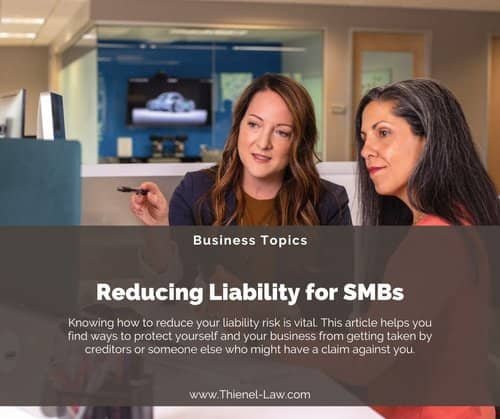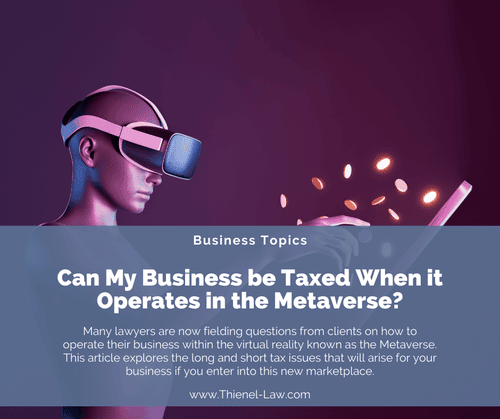[UPDATED] Can I Deduct my Business-Related Auto Expenses on my S-Corp Taxes?
If you use your personal vehicle for business, you may be able to deduct the business-related auto expenses on the S-Corp tax return while obtaining reimbursement for these expenses from the corporation.
However, because unreimbursed employee expenses are no longer permitted under the new tax law (the Tax Cuts and Jobs Act, also called the TCJA), the S-corporation must use a corporate accountable reimbursement plan to maximize the tax benefits of using a personal vehicle for business use. A Maryland tax attorney provides guidance on many S-Corp tax matters that impact the company and your personal tax liability, including deducting auto-related expenses.
Business-Related Automobile Expenses
The company can reimburse you through its corporate accountable reimbursement plan for business use of your personal vehicle by using the standard mileage rate or actual vehicle expenses. The standard mileage rate for 2020 is 57.5 cents per mile, a decrease from 58 cents per mile in 2019. The Internal Revenue Service (IRS) sets the rates annually.
The mileage rate is multiplied by the number of miles the vehicle is driven for business. People driving a personal car in service of a charitable organization or for medical or moving purposes have significantly lower mileage rates.
You cannot use the business IRS standard mileage rate if you take advantage of certain other vehicle-related tax benefits. For example, claiming a deduction under Section 179 or using the depreciation methods available under the Modified Accelerated Cost Recovery System (MACRS) will preclude you from using the standard mileage rate for that vehicle. Also, you cannot use the business standard mileage rate on over five vehicles you use simultaneously as business vehicles.
The company cannot pay you a reimbursement that is higher than the federal standard mileage rate. Any amount of the reimbursement that exceeds the standard rate is taxable income to the employee.
Taxpayers may get reimbursed based on the actual costs of operating the motor vehicle using an expenses method. Actual expenses get reimbursed based on the percent of use (based on miles) of the vehicle for business. In other words, if you use your vehicle 50 percent of the time for business, you could get reimbursed for half of the auto expenses, like gasoline, oil changes, and other items.
It is important to keep detailed records of the annual expenses you want to be reimbursed by the S-Corp. These records can include things like:
Receipts
Canceled checks
Substitute checks
Financial account statements
Other documentary evidence
The company can reimburse you for any expenses you are allowed to take as deductions under Sections 161 to 191 of the tax code under an accountable plan. Only people in at least one of these categories can claim a deduction for unreimbursed employee expenses under the TCJA:
Armed Forces reservists
Qualified performing artists
Fee-basis state or local government officials
Employees with impairment-related work expenses
Taxpayers with certain qualified educator expenses
Requests for reimbursement are submitted to the S-Corp. The S-Corp reimburses you for your actual or standard expenses under an accountable plan. The reimbursement is deducted on the S-Corp tax return as a business expense. If you meet all other requirements under the tax code, the reimbursement is not reported as income on your tax return.
Some Expenses Are Not Allowable
As with other areas of the tax code, there are exceptions to what you may count as tax-free reimbursements. Interest on a car loan is one exception.
Even though interest on a car loan appears in Section 163 of the tax code as a deductible expense, you cannot receive tax-free reimbursement from the S-Corp for this expense. However, the S-Corp can still deduct the expense, and you can receive reimbursement for loan interest, but it must be done as a wage payment.
Interest payments do not qualify for tax-free reimbursement under an accountable plan. The tax code specifically states that interest paid or accrued while performing services as an employee is personal interest and is a nondeductible personal expense.
However, if you want reimbursement for the loan interest, the S-Corp must include the amount on your W-2 statement as wages subject to income taxes. The company deducts the reimbursement for vehicle loan interest as a wage expense and pays the employer’s share of payroll taxes on the expense.
TCJA Limits on Business Interest Expense
Generally, allowable deductions for business interest expenses are not unlimited. The TCJA places limits on how much business interest a company can deduct. If the annual gross receipts of the business for the three previous tax years average out to $25 million a year or less, the TCJA limit on the business interest deduction does not apply.
A company that has interest expenses that exceed the limit can carry the amount forward to the next tax year. The amount will be a disallowed business interest expense carryforward on the next year’s tax return.
How the TCJA Altered the Rules About Depreciation of Passenger Vehicles
The TCJA changed the rules that control the depreciation of passenger vehicles that qualify as luxury automobiles. The rule changes only apply to vehicles placed in service on January 1, 2018, or later. These are the new limits for the allowed depreciation deduction if the taxpayer does not claim bonus depreciation:
$10,000 in the first year
$16,000 in the second year
$9,600 in the third year
$5,760 for every subsequent year of the recovery period.
The TCJA provides higher limits for depreciation deductions for a taxpayer who claims 100 percent bonus depreciation. Taxpayers in that category have these maximum allowable depreciation deductions:
$18,000 for year one
$16,000 for year two
$9,600 for year three
$5,760 for every subsequent year in the recovery period.
The taxpayer must meet all of these tests to qualify for 100 percent bonus depreciation on used qualified property:
The taxpayer acquired and placed the property in service after September 27, 2017.
The taxpayer did not get the item from a related party or a component member of a controlled group of corporations.
Neither the taxpayer nor its predecessor used the property before acquiring it.
The rules for calculating the taxpayer’s basis of the used property were not the provisions that apply to property acquired from a decedent.
The taxpayer’s basis calculation made no reference to the seller’s or transferor’s adjusted basis.
The cost of the property involves no involuntary conversion, like-kind exchange, or a similar transaction.
The TCJA made additional changes to the rules on the depreciation of passenger vehicles. S-corporation and individual tax regulations are complicated and can change from one year to the next. Making a mistake on your employment tax and other taxes can cost you additional tax liability as well as interest and penalties. A Maryland tax attorney can explain the tax code provisions that apply to your business and situation, and help you avoid expensive problems.
Advice from a Maryland Tax Attorney
Taxes for S-Corps can be complex, especially with the recent and ongoing changes in the tax laws. The Tax Cuts & Jobs Act made sweeping changes to how businesses and business owners calculate their tax burden, including expenses, income, tax deductions, and tax benefits.
With some alterations getting phased in over time, the rules that apply to you, corporation shareholders, and your business on things like health insurance, employee business expenses, which expenses are deductible, and others will differ from one year to the next. You probably have questions, like, “Can I deduct my business-related auto expenses on my S-Corp taxes?” A Maryland tax attorney assists clients in addressing tax questions to ensure that the company and the individual are maximizing all tax benefits available under the tax code.
Contact Thienel Law today to get support when tax time comes. Maryland tax attorney Steve Thienel is dedicated to assisting clients in Maryland, Virginia, and throughout the DC Metro area.
Related






